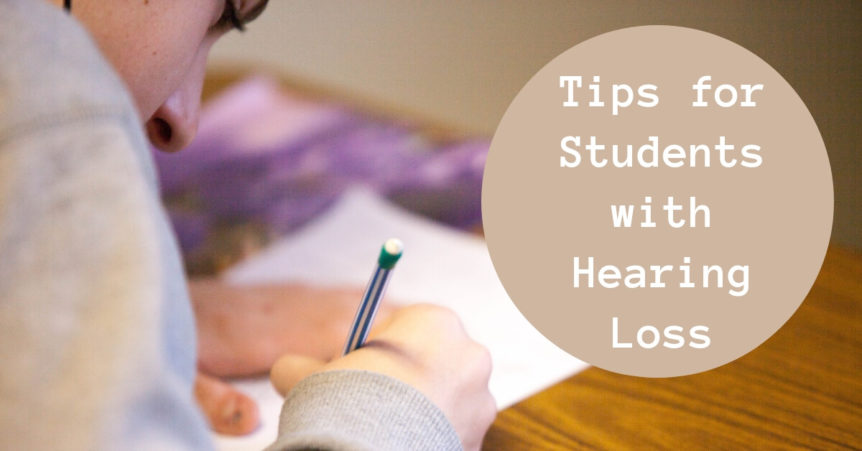The risks of hearing loss do increase as people age, but that does not mean that older people are the only people experiencing the effects of changing hearing abilities. There are growing numbers of young people and teenagers who are experiencing hearing loss—largely as the result of sustained exposure to noise (“noise-induced hearing loss”)—which can have serious, negative effects on their experiences at school.
The U.S. Centers for Disease Control reported in February 2017 that 1 in 5 teens is experiencing some form of hearing loss; that is approximately 30% more teens experiencing hearing loss than were reported in the 1980s and 1990s. As large numbers of Millenials attend schools every day throughout the country, it is of increasing importance to contend with the ways that their changing hearing needs may be affecting their learning.
Academia with Hearing Loss
If you are a student who is experiencing hearing loss, you may be finding it difficult to connect with your teachers, with your schoolwork, and even your peers. One of the most important things you can do to address the effects of hearing loss on your everyday life at school is to simply communicate with your teachers, teaching assistants, and fellow students about things you can all do to ensure you are learning—and socializing—your best.
You may be unfamiliar or uncomfortable with talking about your hearing loss. That’s okay. It can be a difficult topic to discuss it with people who you don’t know, or don’t know all that well. However, there are many different ways to disclose your hearing abilities to other people in ways that can feel safe and non-invasive. One of the ways you can talk about this is to tell people that you didn’t quite catch what they said, and ask them to repeat it more loudly, more slowly, or speak more closely to the ear that you hear best out of. While you do not have to necessarily explain in all that much detail how or why your hearing loss came about, but you can help people to understand how they can communicate with you in the best way.
Your teachers have many students that they see day in and day out, and many of them likely have unique learning needs. That does not mean that your teacher understands your learning needs! Before the start of every term, and certainly with every new teacher you have, be sure to set a meeting time where you two can discuss the ways that they can interact with you in the classroom to ensure that you are hearing—and learning—to the best of your abilities. This may mean that you need an especially quiet classroom with little background noise that will make it difficult to hear. You may ask that your teacher clearly repeat questions asked by other students before they respond to them, giving you time to not only clearly hear the original query but to fully engage with the answer the teacher will give. Oftentimes teachers speak while facing the blackboard or whiteboard. This might be especially difficult for you if you’re experiencing hearing loss, so you should communicate with your teacher that fact. If you are a person who is practiced in lip-reading, it will be helpful to let your teacher know that this is mostly easily done in well-lit classrooms.
Inform Your School Administrators of Your Needs
It is also important to remain in conversation with your school administrators to see if there are other forms of assistance than can enhance your learning, ranging from getting an interpreter for lectures and more to incorporating hearing assistance technologies into your learning environments such as video lectures, induction loops, creating better communication between your hearing aids and any microphones your instructor could be using, and other app and computer based software that would enable you to better engage and participate. No matter what, always maintain lines of communication with the disability services office and/or person that your school provides!
As it may be now be clear, the best way to enhancing your learning environment and capabilities is to maintain open dialogue with the teachers, administrators, and peers who are going to be central to your success as a student. The more open you are about your hearing needs, the better people will be able to support you.
Visit Us at Neighborhood Hearing Aid Centers
Are you a student who experiences hearing loss and requires care and maintenance for your hearing aids? Come visit us at Neighborhood Hearing Aid Centers. We also provide comprehensive hearing testing and hearing aid fittings to ensure that you’re hearing at your best.

